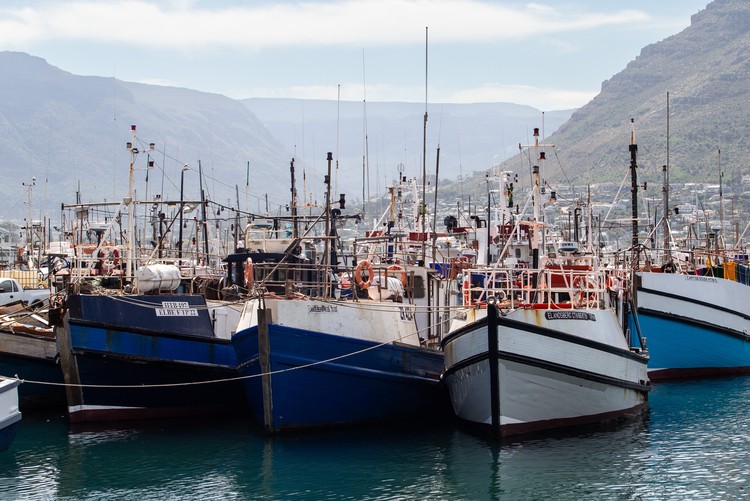Final decisions on fishing rights only in October
Many fishers will be left stranded for months while waiting
Appeals against commercial fishing rights quotas will only be finalised in October, says the Minister of Forestry, Fisheries and the Environment. Archive photo: Ashraf Hendricks
- The commercial fishing rights process will take until October 2023 to complete, Barbara Creecy, Minister of Forestry, Fisheries and the Environment, has said.
- The department has received a record number of appeals against the rights allocations.
- Each appeal would be carefully examined, Creecy told Parliament on Tuesday.
- MPs said the appeals process is taking too long and fishers’ livelihoods were at stake.
Decisions on fishing quotas will not be finalised until October this year, as the Department of Forestry, Fisheries and the Environment is processing a record number of appeals against the allocation of fishing rights.
Appeals against the quotas allocated for the next 15 years in nine fishing sectors closed in July last year.
Minister Barbara Creecy told Parliament’s Forestry, Fisheries and the Environment committee on Tuesday that appeals against linefish quotas would be finalised by the end of February because of the timeframes of the fishing season. But appeals in eight other sectors would take until October; these sectors were hake deep-sea, hake longline, South Coast rock lobster, small pelagic, KwaZulu-Natal crustacean trawl, demersal shark, squid, and tuna.
The successful applicants are able to fish but not those who were refused and have launched an appeal.
The Fishing Rights Allocation Process (FRAP) has drawn criticism from fishers, with fishers from Cape Town and Saldanha Bay who had applied for commercial fishing rights calling for the whole process to be restarted.
Deputy director general of fisheries Sue Middleton told Parliament that the department had never received as many appeals. Of the 2,700 applications received for commercial fishing rights, 710 had been successful. Middleton said that about 1,200 appeals across nine sectors had been received.
“The unfortunate reality of the rights allocation is that you are always going to get more applications than you can accommodate and people are going to be unsuccessful,” she said.
The DA shadow minister, David Bryant, said many fishers “have been failed by this process and it’s very clear that not enough has been done to help them… especially those who come from traditional fishing communities, who only know fishing, and who grew up with their hands in the water”. He said many fishers had not been “able to fish in a way that they have fished for generations” for a year now.
MP Annerie Weber (DA) raised concerns about what fishers would do for nearly ten months while they are waiting for the appeals process to be completed. “This is their livelihood; they cannot fish; they cannot do anything,” she said.
MP Nazier Paulsen (EFF) said that the FRAP process was “a complete failure”, that it was “denying our people access to the ocean” and that the process should be overturned.
Creecy said every appeal was being looked at thoroughly. “The reason you have an appeals process is to correct errors in the initial process,” she said. Every new appeal would be rescored and every issue raised in the appeal would be looked at, she said.
Fishing resources across all sectors were under stress, she said, “as a result of historical fishing practices and as a result of natural phenomena such as climate change and its impact on ocean currents and fish migration”.
Jacobus Poggenpoel, whose family has been fishing in Kalk Bay for five generations, told GroundUp that the family has had to close down their factory because they can’t afford rent and maintenance. Their fishers haven’t gone out on the ocean for months now, and their two boats are standing idle in Kalk Bay harbour.
Poggenpoel was a category A applicant for the pelagic sector, meaning that he held a fishing right for the fishing sector before. Applicants in Category B did not hold a right in the sector they were applying for before, but had rights in another sector. Category C applicants were newcomers.
Poggenpoel said his livelihood was at a standstill until October. “What do you do in the meantime?” he asked.
Support independent journalism
Donate using Payfast

Don't miss out on the latest news
We respect your privacy, and promise we won't spam you.
Next: Phoenix still unsettled by 2021 unrest
Previous: Environmental activists revise pleas in “SLAPP case” brought by Australian miners
© 2023 GroundUp. This article is licensed under a Creative Commons Attribution-NoDerivatives 4.0 International License.
You may republish this article, so long as you credit the authors and GroundUp, and do not change the text. Please include a link back to the original article.
We put an invisible pixel in the article so that we can count traffic to republishers. All analytics tools are solely on our servers. We do not give our logs to any third party. Logs are deleted after two weeks. We do not use any IP address identifying information except to count regional traffic. We are solely interested in counting hits, not tracking users. If you republish, please do not delete the invisible pixel.

